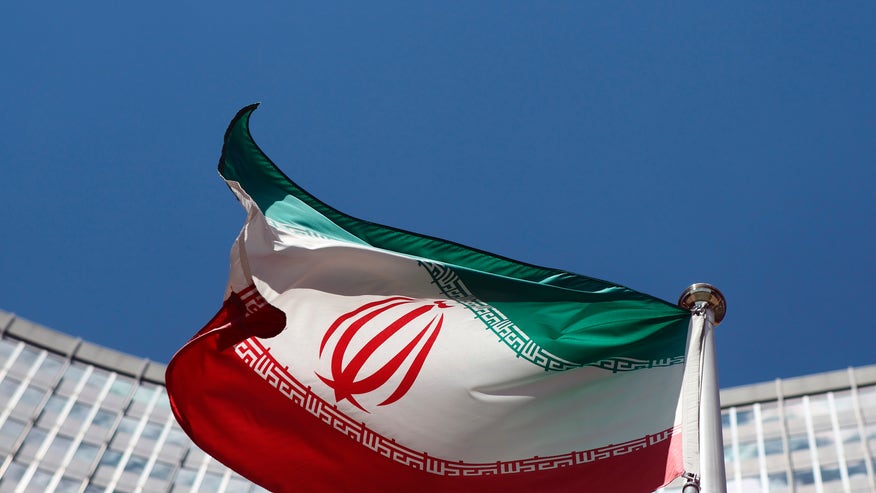
June 17, 2014 - An Iranian flag at United Nations headquarters in Vienna. The U.N. nuclear agency said Friday its attempts to probe allegations that Tehran worked on nuclear weapons were deadlocked -- which may rule out hopes of a full nuclear deal between 6 world powers and Iran by the Nov. 24 target. (REUTERS)
The United Nation’s nuclear agency released a report Friday that says Tehran continues to withhold critical information about its nuclear program, which poses a serious threat to the Nov. 24 deadline for a nuclear agreement between six world powers, that includes the U.S., and Iran.
In one section of the International Atomic Energy Agency’s report, the agency expressed concern about the possible existence of “undisclosed nuclear related activities involving military related organizations, including activities related to the development of a nuclear payload for a missile.”
Iran is required to cooperate fully with inspectors on all outstanding issues involving possible military uses of nuclear material, and provide immediate access to all sites, equipment, paperwork and personnel.
But the report states that the Iranians conducted recent work and activities at the Parchin nuclear facility which “further undermined the Agency’s ability to conduct effective verification.”
Iran agreed in February to work with the IAEA, in what was viewed as a test of Tehran's professed willingness to reduce tensions over its nuclear program.
Since then, the agency has sought information on alleged experiments with detonators that can be used to set off nuclear explosions; work on high-explosive charges used in nuclear blasts, and alleged studies on calculating nuclear explosive yields.
One of the report’s conclusions is certain to cause concern in the international community. "The Agency is not in a position to provide credible assurances about the absence of undeclared nuclear material and activities in Iran, and therefore to conclude that all nuclear material in Iran is in peaceful activities," the report says.
Iran denies wanting -- or ever working on -- nuclear arms. Since February, it has provided information only on the detonators, insisting that they were used for oil exploration or non-nuclear military purposes. The agency says interconnected information suggests they were being tested for nuclear weapons use.
The finding is significant in recording where the investigation stands for the U.S. and five other world powers negotiating with Iran.
The U.S. and its allies say no final agreement will be reached until the IAEA says it's satisfied with its inquiry. With the IAEA investigation stalled, the agency has little hope of reaching final conclusions by Nov. 24.
Even if the six world powers strike a deal with Tehran by the Nov. 24th deadline, verification of Iranian compliance remains an issue. Lack of transparency and secrecy, a fundamental problem with the Islamic Republic for decades now, will not go away.

No comments :
Post a Comment